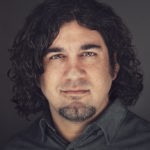“I’ve been struggling with regret lately, specifically in feeling like I wasted my whole academic career (given how things have turned out),” tweeted Karen Swallow Prior three months after resigning from the faculty of Southeastern Baptist Theological Seminary.
When she announced her retirement in March, Prior cited “the politics of institutional life in the SBC” as a reason why she wouldn’t be returning to Southeastern in the fall.

Karen Swallow Prior
As the semester ended and the dust began to settle, Prior reflected on her career as a professor. She confessed she was experiencing “generally just a long bout of feeling sorry for myself, for sure, as I question everything.”
Prior hasn’t shared the details of how she was affected by those politics behind the scenes. But given the SBC’s focus on women teaching, and the hidden battles in Christian higher education and the social-media-driven politics of the SBC, one can only imagine what her private questions may be.
No matter what she may feel comfortable sharing publicly, many Christians across the theological spectrum resonate with her reflection, questioning and wrestling.
Prior, progressives and the power politics of the SBC
When former Southwestern Baptist Theological Seminary President Paige Patterson said a 16-year-old’s body was “built,” Prior joined an effort by Southern Baptist women to write a letter calling him out.
“That letter was 3,000 women saying the emperor has no clothes,” she said at the time. “And I think it just simply sent notice that the gig was up.”
One might wonder, based on her speaking truth to power through the years, if she is secretly a progressive Christian. But Prior remains committed to conservative theology and pro-life politics, despite the conservative men who have hurt her.
“She shares a common wound with us — the wound of being dismissed and demonized by powerful men.”
So while Prior’s theological wonders may differ from progressive Christians and ex-evangelicals who lean to the left, she shares a common wound with us — the wound of being dismissed and demonized by powerful men.
A reminder of my own history with conservative evangelicalism
The gift of Prior’s vulnerability in sharing her regret is that it’s a reminder for all of us about our own similar wounds. Our neighbor’s pain is a window into our own struggle.
After I left the independent fundamental Baptists in 2000, I served for the next two decades in conservative evangelical, complementarian Calvinist churches.
We moved out to Denver in 2004 to help plant a church where I led worship and small groups. Because my undergraduate Bible degree from an unaccredited university was a hard sell to employers, I decided to do what I knew how to do — janitorial and floor cleaning. I figured it could pay our bills and give me the flexibility to invest significant time in the church for free.
Five years later, we had to leave our church due to spiritual abuse. The pastor, who had resigned in the middle of a divorce, was threatening to start an alternative church because we wouldn’t reinstate him or let him continue preaching. Then he attempted to perform church discipline on us.
In one meeting, I sat calmly for seven hours while he brought a myriad of accusations against me that were completely unfounded. All the other leaders agreed the accusations were false. But his threat of replanting and taking half the church remained. And for the sake of the gospel, we didn’t want to see the church split. So we left quietly, knowing what it would mean for our reputations. After we left, his two friends appointed themselves as elders and called him back to be the pastor.
“For the sake of the gospel, we didn’t want to see the church split. So we left quietly, knowing what it would mean for our reputations.”
We soon found ourselves in a Sovereign Grace church, which we loved at the time. But then we learned about the abuse that C.J. Mahaney and other Sovereign Grace apostles and pastors were credibly accused of. So once again, we had to leave.
After moving back home to South Carolina, we joined a megachurch, where I volunteered leading worship. Since my resume consisted of a decade in voluntary church roles and cleaning, nobody would hire me. So I started my cleaning business again in order to have the flexibility to invest myself in our new church for free.
I drove my body into the ground for the church. Spending so much time on the church took my focus away from my cleaning business, which led to financial difficulties. I had stress-induced shingles at age 35. We had two 20-year-old vehicles with no air conditioning, one of which my wife drove around in the South Carolina heat during three pregnancies.
Seven years later, while I was leading worship, one of the pastors said something from the stage that was so personally hurtful that I looked down into the congregation and saw my wife crying. Much hurt had led to this moment. And I simply didn’t have the strength to lead anymore. So I set my guitar down, walked off the stage, and haven’t led worship since.
I’m deeply hurt. And am I complicit?
Becoming aware of my own wounds led to becoming aware of my neighbors’ wounds. The common factor in these wounds are men at the top of a sacralized hierarchy living out their gospel through abusive power dynamics of authority and dominion while requiring submission and obedience.
Eventually, I began to notice the way these men positioned themselves in expressing sovereignty and power over others was eerily similar to the dynamics of their gospel of expressing sovereignty and power over others. And thus, my theological deconstruction began.
But one question haunted me. Am I complicit?
After all, I spent 20 years promoting the dynamics and institutions that kept these men in charge. What’s more, I left quietly for the sake of the gospel.
“I spent 20 years promoting the dynamics and institutions that kept these men in charge.”
In the year following our departure from the church we planted in Denver, dozens of members reached out to me privately to say they also had been abused by the leadership. So I wondered: Could I have prevented their abuse if I would’ve stood up to the abusers more?
In 2022, I received a message from a conservative evangelical pastor who was part of a recent merger with the church we had planted nearly 20 years earlier. After they merged, this pastor said they “experienced some very unhealthy leadership.” Regarding our former pastor, he said, “To be honest at this point, it is what it is when it comes to him and his ministry.” Then he added, “He is something else for sure.”
The church we planted back in 2004 now has been replanted multiple times under different names with the same three men in charge — the two self-appointed elders and our abusive pastor. After 13 years since reinstating our former pastor, they’ve added just one other elder. That’s two decades of abuse that perhaps I could have prevented if I hadn’t left quietly for the sake of the gospel.
Coming together in our common wounds
As one might imagine with the theological and church journey we’ve been on, the relationships in our lives are complex. We have friends and relatives who love Donald Trump, who think John MacArthur and Douglas Wilson are virtually inerrant, others who are atheists, and everything in between. In some ways, it reminds me of Prior, who has taken flak from people on the right over the liberals she’s been willing to befriend.
But none of those differences are the focus in the face of great suffering. When Ruth Ellen, my wife, was diagnosed with cancer, in our common human suffering we all met face to face.
And perhaps that’s why I feel a sense of empathy for Karen Swallow Prior.
Even if our wonders are different, we share some common wounds — wounds from the abuse those above us hurt us with, and wrestling with regret over so many years we spent in those institutions given how it turned out.
With all the deconstruction I’ve done, coming together in common human suffering is perhaps the aspect of Christian theology that still resonates with me the most. Beneath all the atonement theories, justice theologies and methods of hermeneutics is a story about God and humanity coming together in the common human sufferings of pregnancy, childbirth, life and death. It’s there in the seeping together of breath, blood and soil that a claim of union is made. It’s a union where what is and what becomes begins by remembering what is lost.
On leaving and losing
When I left the conservative evangelical churches I was a part of, they eventually erased every sermon I preached, every song I wrote, every album project I led. After everything I gave to them, it’s as if I never existed.
Was that a waste?
After all those years of cleaning for the sake of serving churches whose theology I would eventually deconstruct, I had a family of seven to care for but no viable career options.
Was that a waste?
When I posted a thread on Twitter about this topic, one person reached out and said: “I’ve traveled a similar path as a former teacher in a Christian school. Once you leave, it’s as if you died. My whole identity was wrapped up in what I believed to be my calling. When I felt led to move on, I knew it was right, but felt like everything to that point was a waste.”
“Grief and gratitude go hand in hand in the weirdest of ways.”
Another former pastor responded: “I see both sides. As an ex-evangelical pastor who lost a lot in the leaving, it feels so devastating. On the other hand, I’m grateful for many of those experiences and people who made me who I am today. Grief and gratitude go hand in hand in the weirdest of ways.”
Prior’s vulnerability here is resonating with many of us who have left the spaces where we invested our lives. That feeling of regret can be strong. But naming and moving through it also can birth in us a self-compassion that can rest in knowing all we’ve left or lost is still present in our becoming.
On being and becoming
Many of my cleaning contracts were with churches. As a worship leader, I met with the men in charge to strategize with them about magnifying the supremacy of God. As a janitor, I wiped their urine off toilets. I saw the entire tower from the top floor on down to the sewer lines. Between those experiences and my theological training, I know how the tower functions.
I would not be able to be present in my writing with the depth of insight I have if I had not been present in those contexts with the depth of commitment I had. And no matter how much those men erase what I published, they can’t erase what I saw and learned.
The true work isn’t a capitalistic accomplishment of something outside ourselves, even in the name of ministry. But it’s the presence of becoming that happens within ourselves and among one another.
Like evolution, we hold the entire journey of the universe in our bodies. Most of what has been is lost to time. And yet, it’s a part of who we are.
In Booked: Literature in the Soul of Me, Prior says, “Freedom is not an endless sea of choices, but an acceptance, embrace even, of both the nature and the grace at the core of our being and our becoming.”
“Our bodies, minds and souls are the fruit of our past becoming.”
The nature of our being is that our bodies, minds and souls are the fruit of our past becoming. When we process this reality through self-awareness, we observe ourselves as our neighbors. And so, we who are called to love our neighbors as ourselves end up loving ourselves as our neighbors.
Another famous former evangelical pastor who left his context and had to process these same feelings was Rob Bell. In one podcast, looking back on his journey, Bell said: “I love all the Me’s. We love all the You’s. We love the earlier You’s.”
Then he continued: “Would I write that now? No. Am I interested in some of those same things? No. What do I do? I just smile. ‘That guy was giving it everything he had.’ Yeah, I was doing what I could with what I had at the time. And I did my best to write it down. So I made peace with that a long time ago. And you can too. You love all the You’s. And if somebody says, ‘Well this is a lot different than what you used to write!’ Yeah! It’s called maturity. It’s called growth. It’s called evolution. It’s called expansion. It’s what the universe has been doing for 13 billion years. I figured I’d join in. And I figured I’d join in with my writing and my words.”
What else, but the kindness of forgiving grace?
Prior concluded her tweet by saying, “I don’t know why the Lord is so kind to me. But he is. He is.”
If Christian theology turns out to be true, perhaps the kindness of God is directly tied to God meeting us in our common human suffering. When Jesus said during his suffering, “Father, forgive them for they know not what they are doing,” perhaps he was feeling his neighbor’s suffering in his own suffering.
And maybe that’s the kindness of grace we need to reflect toward ourselves, a grace that forgives our past selves because we didn’t know what we were doing but were giving it all we had.

Rick Pidcock
Rick Pidcock is a 2004 graduate of Bob Jones University, with a Bachelor of Arts degree in Bible. He’s a freelance writer based in South Carolina and a former Clemons Fellow with BNG. He recently completed a Master of Arts degree in worship from Northern Seminary. He is a stay-at-home father of five children and produces music under the artist name Provoke Wonder. Follow his blog at www.rickpidcock.com.
Related articles:
Karen Swallow Prior to leave Southeastern Seminary
The year of being threatened by smart women | Analysis by Mark Wingfield


